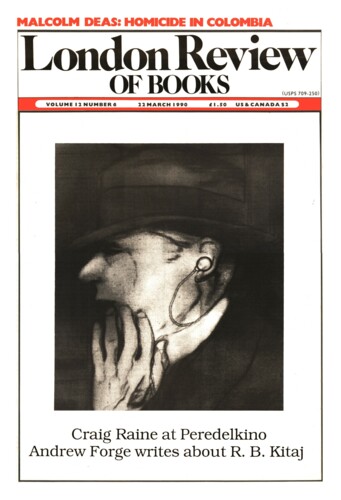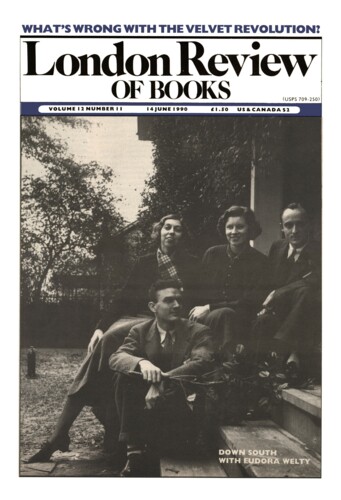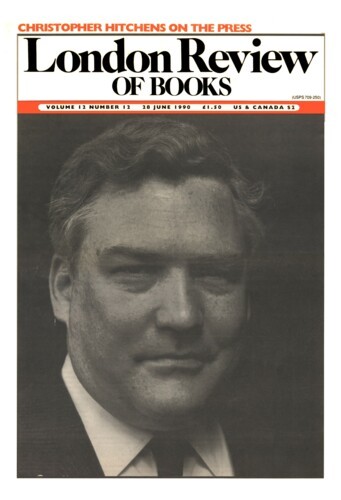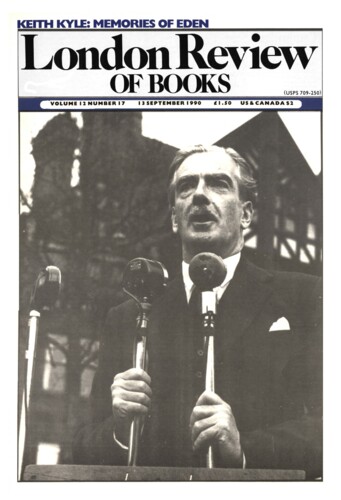Oms and Hums
Julian Symons, 22 March 1990
There was a time in the Fifties when, no doubt about it, the literary and even extra-literary activities of the Beats were an exhilarating contrast to the careful sobriety of Movement poets and the wistful glances in the direction of social orthodoxy made by the younger English novelists. The heroes of Allen Ginsberg’s ‘Howl’, ‘destroyed by madness, starving hysterical naked/dragging themselves through the negro streets at dawn looking for an angry fix’ positively bounced with energy when put beside Donald Davie sitting wrapped in his overcoat beside the fire saying Heigh-ho on a winter afternoon. It was possible then to see Ginsberg, Kerouac and their friends as anarchists articulating and exemplifying a morality that flouted the values of liberal Western society and the rigidities of orthodox Communism in favour of a romantic code that valued above anything else personal friendship and the capacity for ‘feeling everything, liking everything and going beyond the need for choice’.




